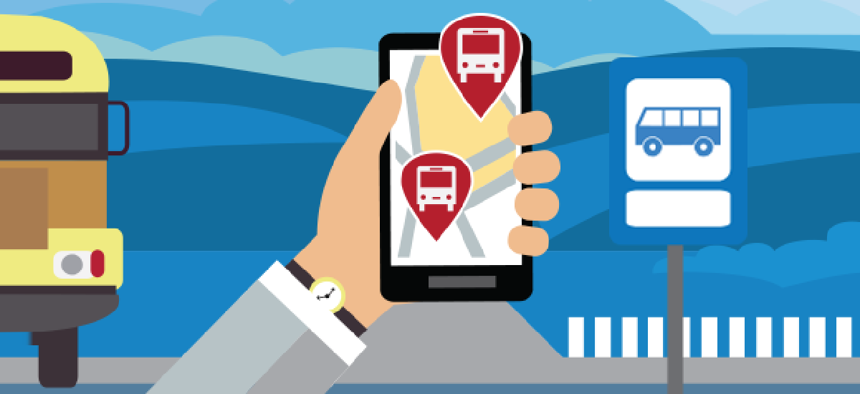Can real-time transit data really be open?

Variations in state and local licensing agreements can raise transaction costs, create barriers and substantially reduce the value of the data, a new report suggests.
Real-time data may require a separate standard for openness, according to a recent report on open licensing of real-time public-sector transit data.
The report specifically looked at location-tracking data, which can be used to create apps predicting the arrival time of transit vehicles at particular stops. Transit authorities have also used this information for safety, planning, emergency response and other monitoring purposes.
This type of access “typically places greater demand on the resources of the data custodian and may also present security challenges,” said Teresa Scassa and Alexandra Diebel at the University of Ottawa.
Although the study focuses on transit data, the authors posit that this issue will have broader implications, particularly for emerging smart cities with the embedding of sensors that can record and transmit a variety of dynamic data.
The authors studied six U.S. municipal transit authorities in the United States and four in Canada that have publicly adopted an open approach to sharing both static and real-time transit data. Transit systems examined were in Chicago, New York, Boston, Portland, Ore., San Francisco and Washington, D.C., as well as Ottawa, Vancouver, Montreal and Winnipeg.
For the study, the authors defined open data as that which is “complete, primary, timely, accessible, machine-processable, non-discriminatory, non-proprietary and license-free…provided for free reuse subject to minimal or no conditions.”
In the United States, licenses are not required for public domain federal data, but they are required for proprietary state and municipal data. Currently there is no single standard for government open-data licenses.
“The result [of a lack of standardization] is sometimes widely divergent open licenses at the state and municipal levels,” the authors said, which “can pose challenges for legal interoperability.” This interoperability is as the ability to combine databases from different sources “without compromising the legal rights of any of the data sources used.”
That means developers must acquire legal license to the data or other materials they use from multiple sources. The lack of license interoperability not only can raise transaction costs and create barriers, but substantially reduce the value of the data.
There can be two layers of licensing for real-time open data: an open data license that may be the same as for static data, dealing with data ownership, permission to use the data and limiting liability. A second type of license covers the downloading and use of application programming interfaces to access the data, representing a contract between the transit authority and the app developer.
“Since the underlying data cannot be accessed without the developer’s agreement to the terms of use for the API, these terms add a layer of contractual obligation which may, in some cases, be significantly different from the terms of the open data license,” the authors said. However, in the United States, transit authorities “have shifted towards an new approach that involves a single ‘Developer’s License Agreement’ that merges the two agreements and covers both the rights to data and the terms of any API use.”
Another wrinkle is that municipal transit authorities typically contract out for the data collection hardware and software. As a result, there is the possibility that the data is actually owned by a private-sector firm.
Then there are “trickle down” terms -- those to which the transit authorities agree with any private supplier that must be passed on to all users or developers. Standard legal clauses -- covering such items as registration requirements, API terms of use, indemnify and hold harmless, ownership of intellectual property, fees for use, termination agreements, limits on calls to the database, usage limitations and acceptable use -- could all potentially impede or counteract the concept of open data.
Their conclusion: “almost universally the licenses considered in this study contain terms that are inconsistent with conventional open government data licenses.”
“While some of these conditions may be linked to the different realities of providing public access to live-streamed data (registration requirements and perhaps limits on calls to the database), others are more difficult to justify (revocability, indemnification and hold harmless clauses), and some are simply antithetical to any reasonable vision of open data (restrictions on purpose of use, and the right to charge fees for commercial uses),” they wrote.
“Beyond this,” they continued, “the high degree of variation from one developers’ license agreement to another is a significant barrier to legal interoperability…creating potentially unnecessary barriers to innovation.”





